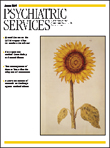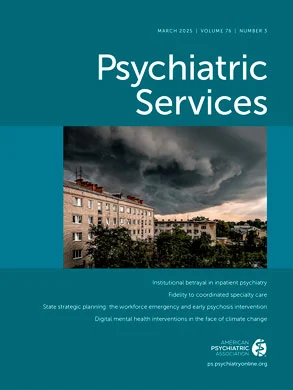The preface of this compact volume begins with the question, why do we need another book on schizophrenia? The authors answer honestly that it is the only way they could get a paper published based on a Ph.D. dissertation and because there has yet to be a book that reflects two major developments in the field: studies following Andreasen's rating scale for thought, language, and communication disorders and the rise of a neuropsychological approach to schizophrenia.
Although fascinating in places, this scholarly work is not light reading. The authors are a British psychiatrist with a special interest in neuropsychology and a linguist. Essentially this book is everything you wanted to know about the concepts of the formal thought, speech, and language disorders in schizophrenia. The nature of these disorders is examined in detail in seven chapters. A final chapter offers some conclusions and a few speculations. The authors start with what may be a surprising premise, that we really don't have a good understanding of the nature of formal thought disorder in schizophrenia—for those of us trained in the era of Bleuler's 4-As, loose associations. The book then supports this premise in great detail and critically reviews the many concepts about what underlines thought and language disorder in schizophrenia.
The clinical material contained in the book may be of the greatest interest to clinicians. Samples of speech from individuals with schizophrenia, which make for fascinating reading, are interspersed throughout the book. We are reminded that thought disorder occurs in mania and schizophrenia. Comparison samples of speech from aphasic, head-injured, postlobotomy, and autistic patients are included, as are samples from so-called normal and eccentric persons. The inclusion of the opening paragraphs of James Joyce's Finnegans Wake, with the author's key to some of its meaning, adds to richness of the discussion.
The conclusions may not satisfy the casual reader because final answers are not in yet, but I found the final chapter made for the most interesting reading. In a section titled "Why is thought disorder so complicated?" the authors write, "There seems to be no way of avoiding the unwelcome conclusion that thought disorder comprises a number of quite different abnormalities which combine and recombine erratically, often in the same patient." By raising the question of whether thought disorder is really a disorder of thought, language, or both, the inevitable conclusion appears to be both.
The authors' argument as to why there has been reluctance to consider language disorder as part of schizophrenia is intriguing. If I understand their argument, if schizophrenia were seen as involving dysphasia or language disorder, it would be seen as fundamentally a neurologic disorder, which is presumably unacceptable to psychiatry. The fact that schizophrenia is both a disorder of the brain and the mind seems clear from this critical, scholarly review of the not so simple concept of thought disorder.

